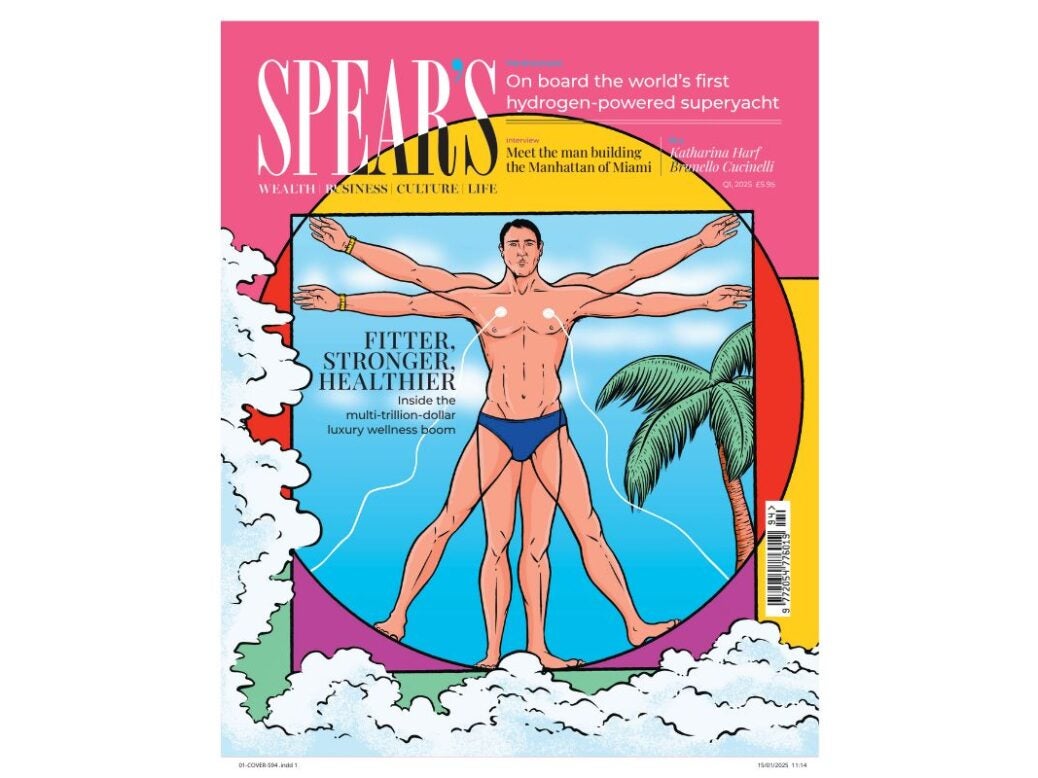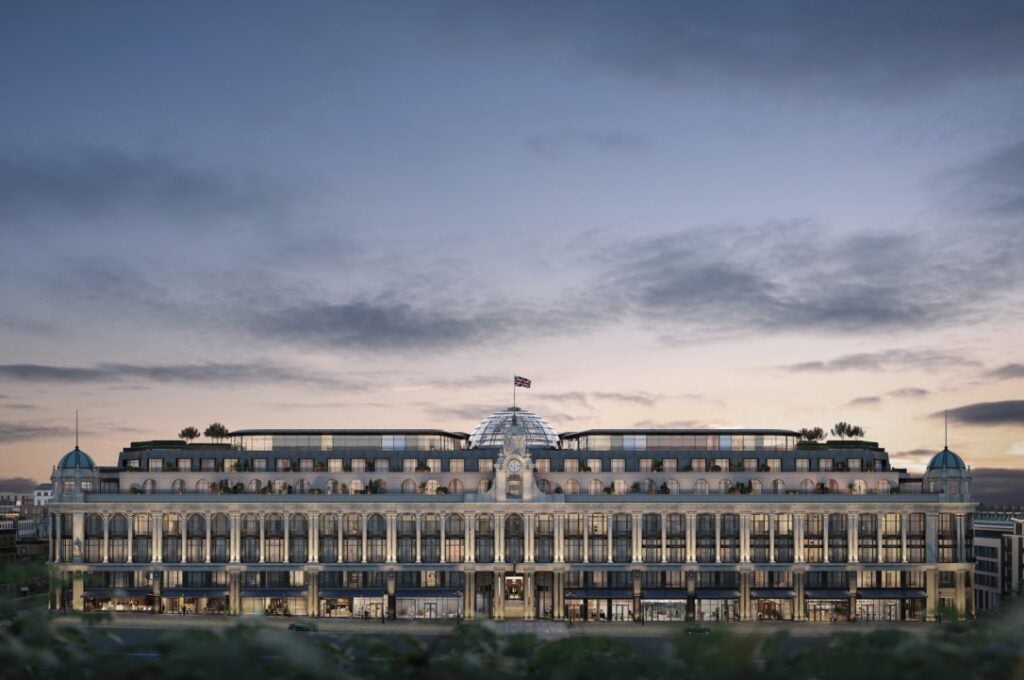
Wellness is big business. Precisely how big, it’s difficult to say.
The brains over at McKinsey reckon the sector is worth $1.8 trillion per year. ‘Pah!’, says the Global Wellness Institute, whose researchers put the figure at a more punchy $6.3 trillion.
Whoever’s closer, it’s a significant market, and one that has been supercharged at the top end by a surge in the availability of new technologies and treatments, delivered in increasingly luxurious settings which meld science with comfort, service and design.
For this issue, Simon Usborne dived head-first into the burgeoning market, undergoing tests at a Mayfair clinic with a £54,000 annual membership fee and speaking with the key figures in the sector – including the CEO of a Swiss clinic who is raising a €300 million fund to invest in the space.
That investor is not the only impressive figure in the pages of this issue of the magazine, of course. We have exclusive interviews with Italian fashion magnate/philosopher king, Brunello Cucinelli; the man behind the Royal Family’s favourite London hotel, the Goring; and Prince Robert of Luxembourg, whose career has seen him go from screenwriting in Hollywood to running the family business named after his American financier forebear, Clarence Dillon.
Elsewhere Katharina Harf, daughter of the former Coty CEO Peter Harf, speaks to us about her work fighting the disease that took her mother’s life with the blood cancer charity DKMS.
Our Briefing section this time is a bumper edition with two separate (but not always unrelated) areas of focus: property and reputation. The real estate investors among you may be interested to learn what the experts think about the role NDAs can play when it comes to sizeable transactions and, indeed, to discover how the area around London’s Queensway is undergoing something of a renaissance. We have two more exclusive interviews here: one with the man building Miami’s answer to Manhattan and the other with Chris Burch (ex-husband and ex-business partner of Tory Burch), who is partnering with interiors maven Dara Huang on a new London project.

The reputation section has a trio of reports, which cover the increasing dangers posed by mis- and dis-information in the age of AI; a new insurance product that offers protection against the perils of cancel culture; and why a good ghostwriter can be a useful friend for a high-profile or high-net-worth individual.
[See also: The £54,000-a-year health clinics helping the super-rich live longer]
This edition also carries our coverage of the Spear’s Awards – both in our social pages and in a feature with interviews and beautifully captured portraits of the winners taken at The Peninsula London.
In Arcadia, Nick Foulkes plumbs the depths, but only because his subject matter – the history of the Rolex Submariner – demands it. Daisy Dunn wonders what the ancients would have made of superyachts, Sam Leith considers Elon Musk’s foray into politics and Rory Ross hits the gallops with a piece about the bloodstock market in which he explains the significance of a yearling sold for 4.4 million guineas.
[See also: Mapping the world of Rolex]
Our Goodlife section runneth over, as always, with considerations of square watches, serpentine jewellery (to mark the Chinese New Year) a new Lamborghini, a cigar wrap, and the nation of Bhutan.
Two other standouts to mention before you get stuck in. One is Lionel Barber, who was editor of the FT from 2005 to 2020. I’m delighted to say that he makes his debut in the pages of Spear’s with a review of a new book about Chinese tech giant Huawei. The other, if I may be immodest, is my global exclusive from on board the world’s first hydrogen-powered superyacht. On a cold day at the Amsterdam facility of LVMH-backed shipbuilder Feadship, Spear’s became the first media outlet to set foot on this groundbreaking piece of technology.
I hope you enjoy the magazine.
This letter was first published in Spear’s Magazine Issue 94. Click here to subscribe.







